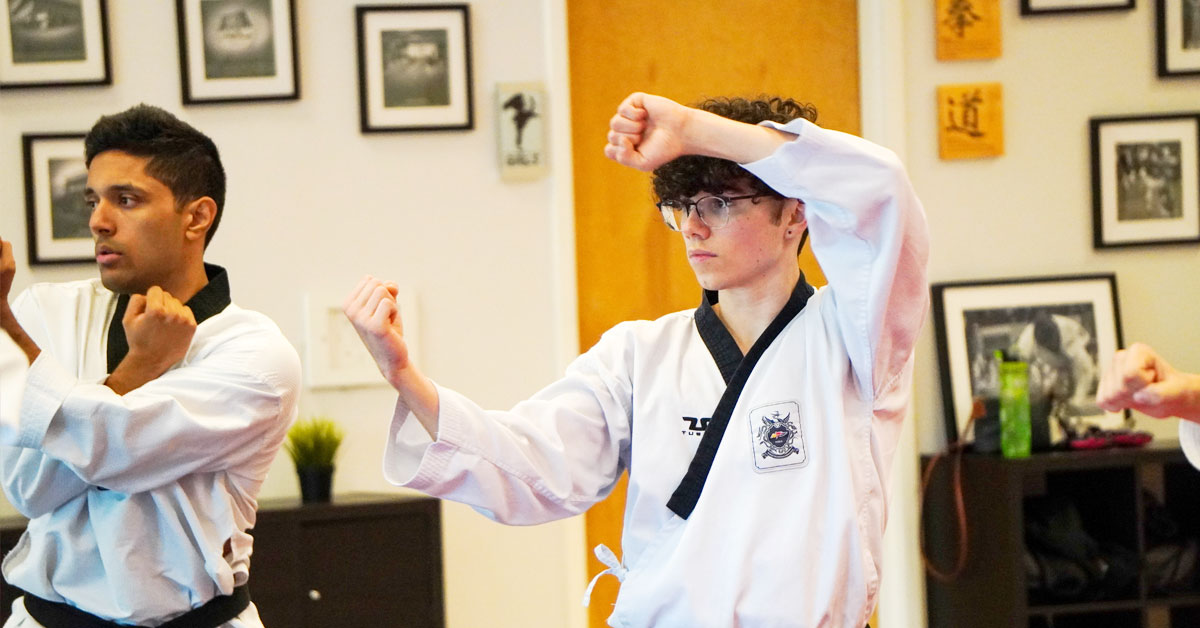Why Every Teen Should Try Martial Arts in Peachtree City
(According to Experts)
In today’s fast-paced digital world, parents are increasingly seeking meaningful activities that help teens grow into confident, balanced, and resilient young adults. Among the options, martial arts stand out—not just as a physical activity, but as a holistic approach to personal development. According to child development experts, martial arts can play a powerful role in shaping a teen's mental, emotional, and physical health. This article explores the reasons why every teen should consider martial arts, and how it can make a lasting difference.
Physical Benefits of Martial Arts for Teens
Martial arts offer far more than just kicks and punches. They promote a full-body workout that enhances overall physical fitness—improving endurance, flexibility, and strength. Unlike other sports that focus on specific muscle groups, martial arts engage the whole body.
Teens often struggle with sedentary lifestyles due to excessive screen time. Martial arts classes break this cycle, helping adolescents develop better posture, mobility, and energy levels. Over time, regular training can aid in weight management and promote healthier sleep patterns.
Mental & Emotional Development
Beyond physical benefits, ABBA martial arts in Peachtree City dojang(school) emphasizes core values such as respect, humility, perseverance, and responsibility. Teens learn how to accept feedback, push past challenges, and show discipline—skills that extend into academics and social life.
Programs that promote emotional intelligence—like martial arts—can build stronger character and peer relationships, as highlighted by the Harvard Making Caring Common Project. (Source: https://www.cdc.gov/mentalhealth/learn/index.htm)
Consistent training builds self-confidence as teens achieve belt ranks, overcome challenges, and see progress. With each improvement, they learn that discipline and perseverance pay off—valuable lessons applicable in academics and life.
Character Building and Life Skills
What sets martial arts apart is its strong foundation in ethics and personal values. Respect, humility, self-control, and courtesy are emphasized in every class. These values translate beyond the dojo, influencing how teens interact with peers, teachers, and family.
Programs that emphasize respect and emotional intelligence—like martial arts—help foster stronger personal character, as noted by the Harvard Making Caring Common Project. (Source: https://mcc.gse.harvard.edu/)
Furthermore, martial arts training requires goal-setting, consistent effort, and accountability. Many instructors incorporate real-life discussions, teaching teens to apply principles like responsibility, patience, and integrity in daily situations.
Self-Defense and Personal Safety
In a world where teen safety is a growing concern, martial arts equips students with practical self-defense skills. While physical defense techniques are part of the training, the primary goal is to develop situational awareness, boundary-setting, and de-escalation strategies.
This kind of empowerment builds a sense of control—not through aggression, but through preparedness and confidence. For many teens, knowing how to protect themselves creates peace of mind and reduces fear in unfamiliar situations.
Martial Arts vs. No Martial Arts: Teen Development Compared
To better understand the impact of martial arts, here’s a comparison of key developmental areas between teens who practice martial arts and those who don’t:
1. Physical Fitness
2. Self-Confidence
3. Discipline & Routine
4. Emotional Regulation
4. Social Behavior & Respect
While every teen is unique, studies and real-world observations suggest that martial arts contribute positively to personal growth, emotional balance, and academic motivation.
Choosing the Right Martial Art for Your Teen in Peachtree City
Each martial art has its strengths, and the best choice depends on your teen’s interests and goals:
When evaluating schools or programs, consider the instructor’s credentials, class size, atmosphere, and focus on values. Don’t hesitate to attend a trial class or meet with instructors to see if the environment aligns with your teen’s needs.
👉 For a complete guide on selecting the right martial arts school, check out this detailed article tailored for parents: https://martialartsptc.com/how-to-choose-a-good-martial-arts-school-for-your-child-in-peachtree-city/
Conclusion
Martial arts offer a powerful combination of physical conditioning, mental strength, and ethical grounding—all crucial elements for healthy teen development. Backed by expert opinions and supported by thousands of success stories, martial arts can help your teen navigate adolescence with confidence, resilience, and purpose.
If you're exploring extracurricular options for your teen, martial arts might be the best decision you never knew they needed.
👉 Want to see the difference for yourself?
Click here to book a free trial class at ABBA Martial Arts in Peachtree City and give your teen a head start on a healthier, more confident future.
➡️ Click here to book your free trial class: https://martialartsptc.com/free-trial-class/
It could be the start of a lifelong journey.
❓ Frequently Asked Questions (FAQ)
1. What are the best martial arts schools in Peachtree City?
Several top-rated martial arts studios in Peachtree City offer teen-focused programs. Look for certified instructors and positive student reviews.
2. Are there martial arts programs for both kids and teenagers?
Yes! Most dojangs(school) offer youth martial arts programs that adapt in intensity based on age and experience.
3. Where can I find self-defense classes for teens in Gorgia?
You’ll find multiple teen self-defense classes in Georgia, including programs tailored for teens in Peachtree City.
4. What art the benefits of martial arts for teenagers?
Martial arts builds physical fitness, emotional strength, discipline, and confidence—skills that benefit teens for life.
